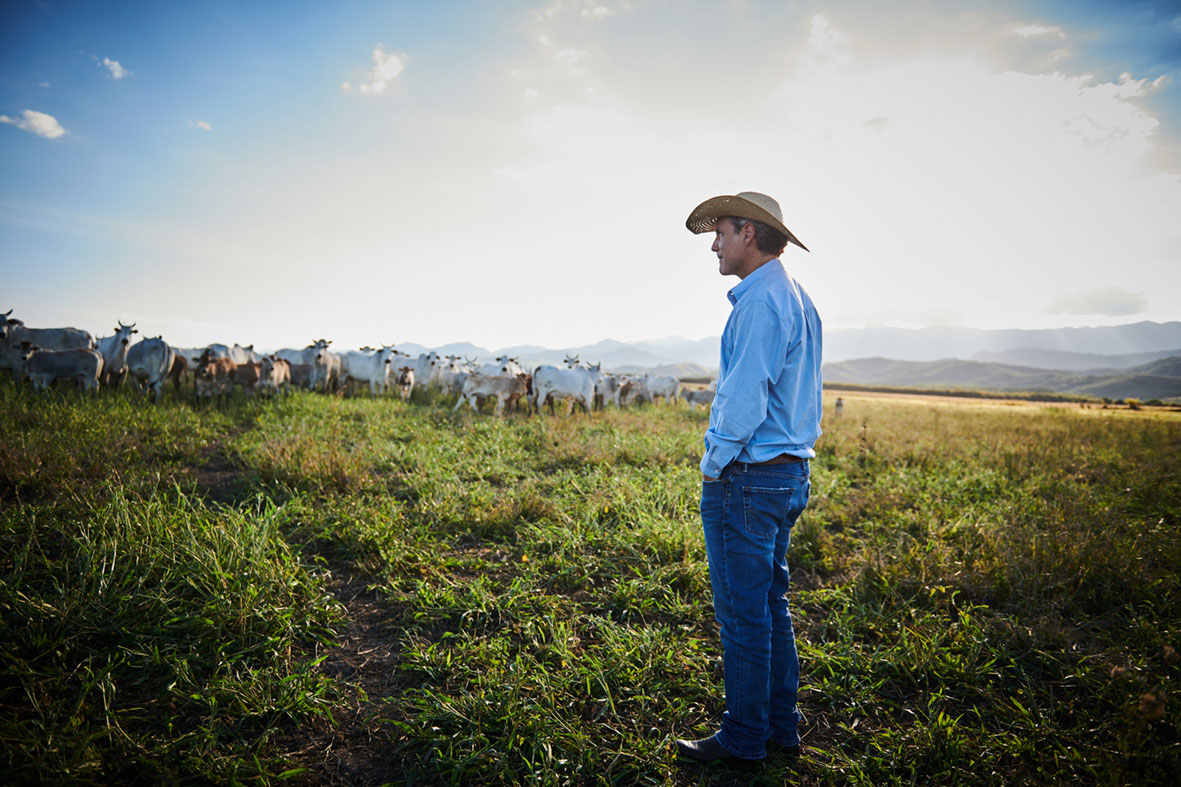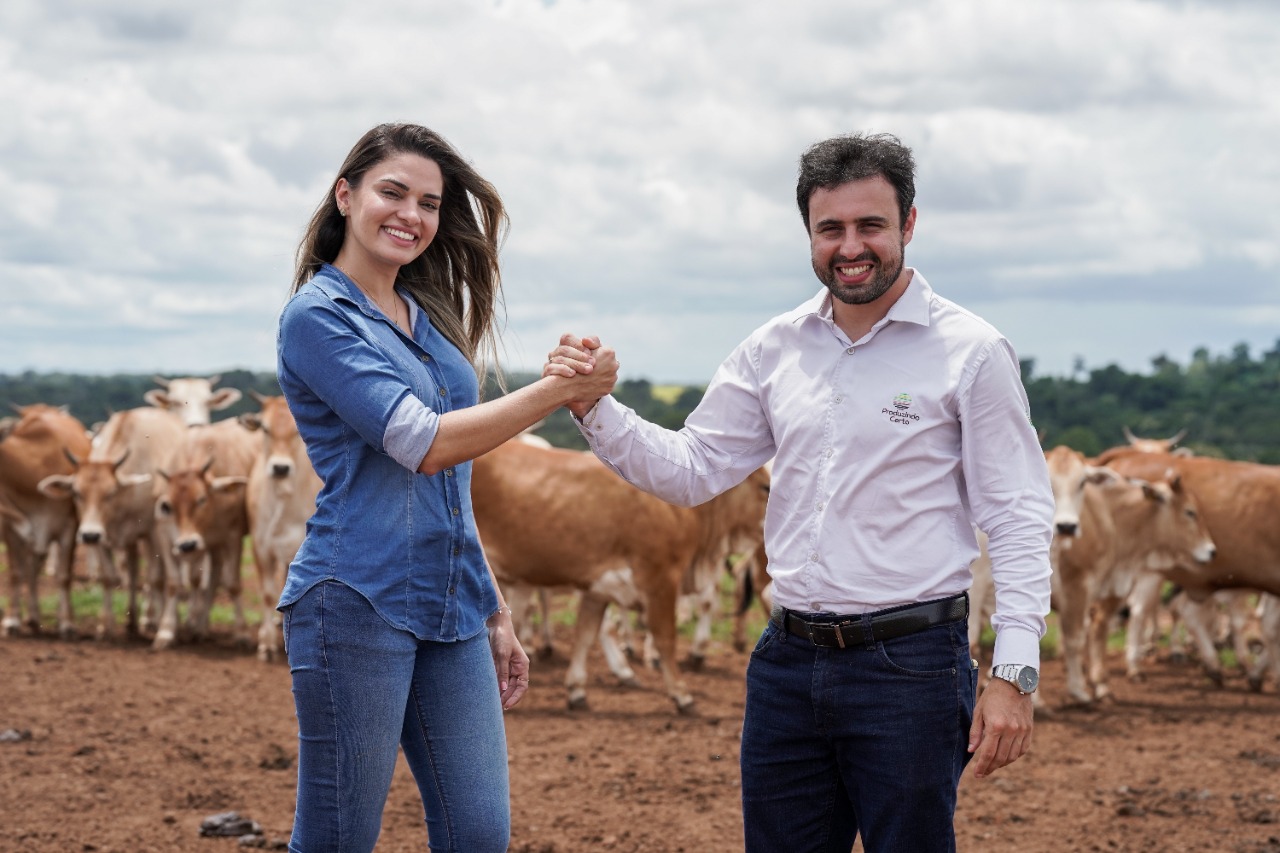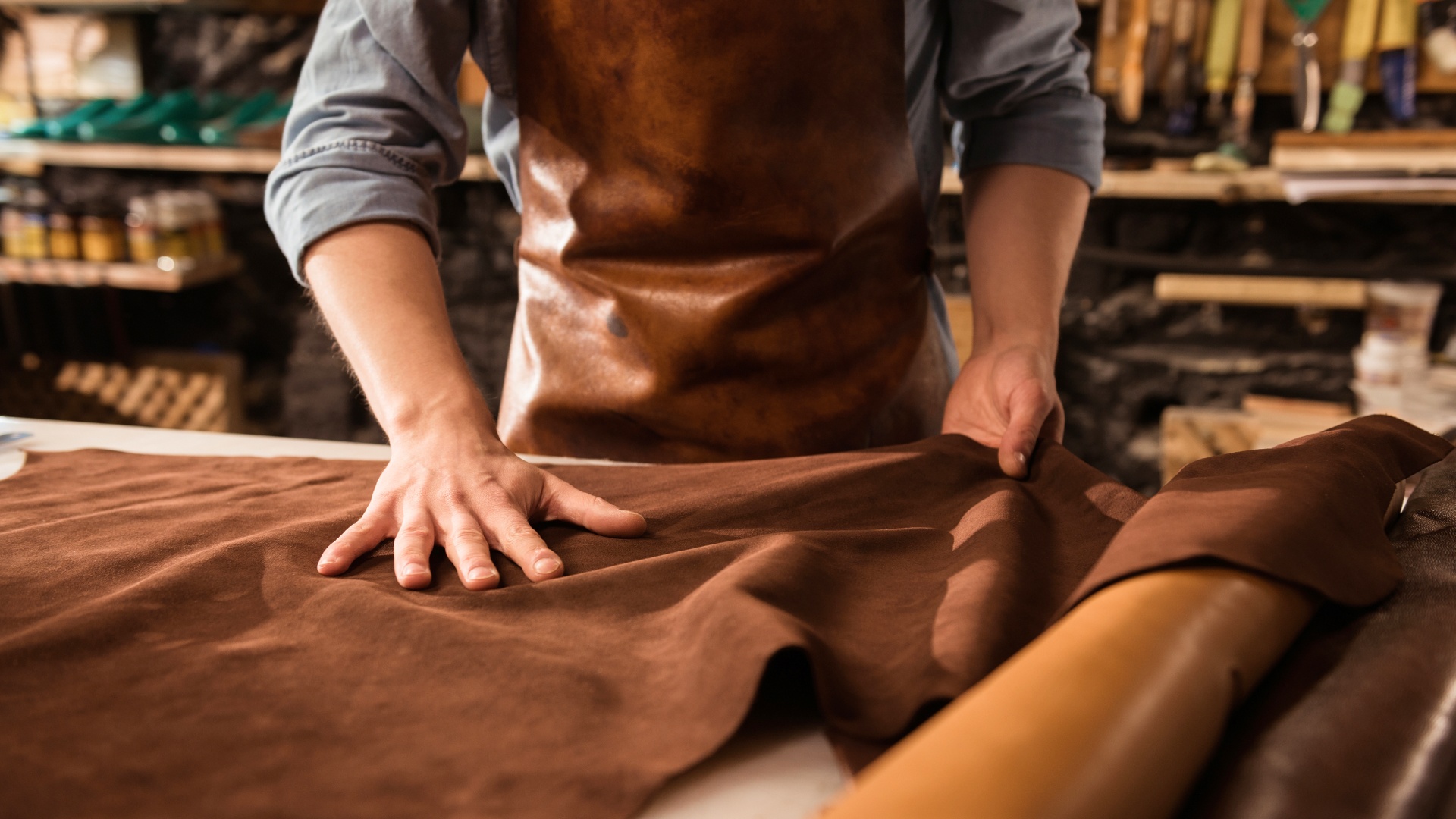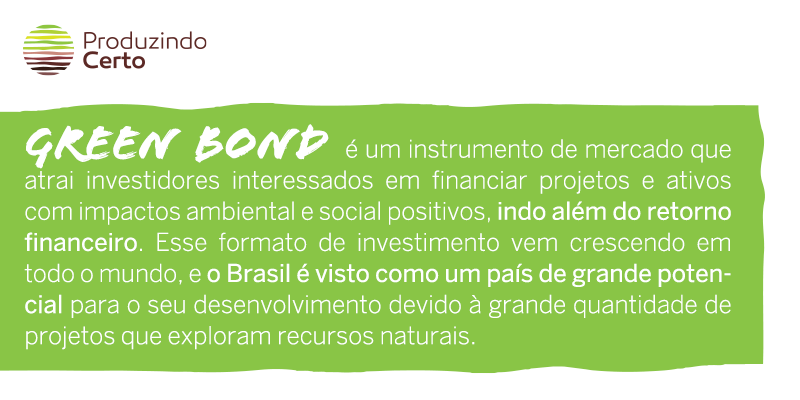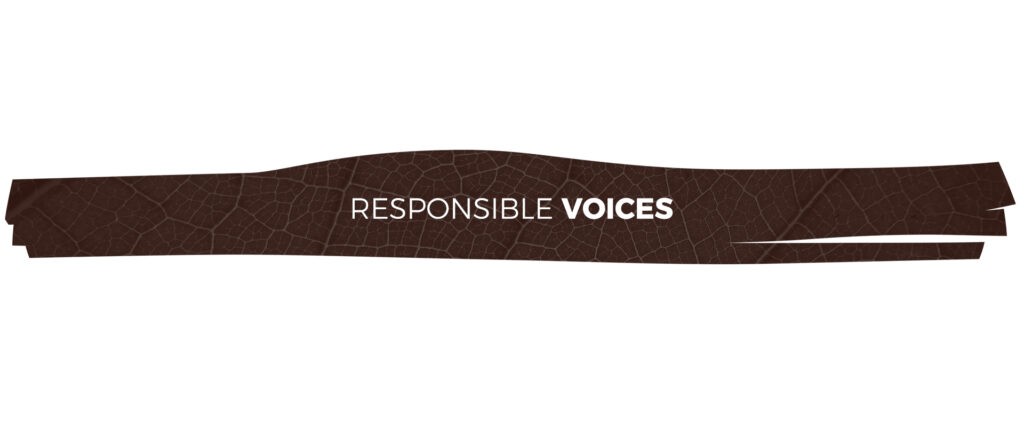
How, in only a decade, farmer Pelerson Penido multiplied production by 40 without chopping down a single tree at Roncador Farm
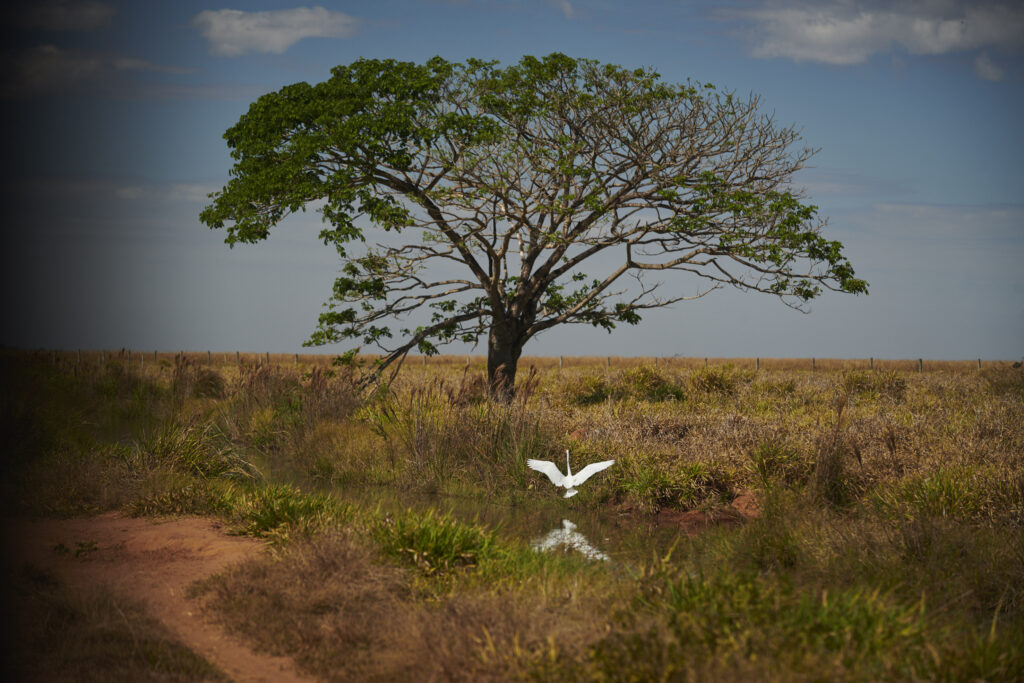
Farmer Pelerson Penido Dalla Vecchia has in his mind—and on the shelf behind his desk in his office—all of the social and environmental assessments of Roncador Farm for the past 10 years. The decade marked a true revolution in one of the largest farms in the country, totaling 152,000 hectares (an area larger than the city of São Paulo) driven by good management, technology, and constant monitoring of performance. Its production grew fortyfold in this period. Soybean and corn cultivation joined livestock farming, local biodiversity increased, and greenhouse gas emissions were neutralized. And all this was done without cutting down a single tree, as Penido, CEO of Grupo Roncador and grandson of its founder, is proud to point out.
But it didn’t used to be that way. Around 2007, the property located in Querência (MT) was facing depletion of the soil and loss of profitability. One of the conclusions for the failing economic results was the practice of extensive livestock farming; therefore, the challenge was to become simultaneously more profitable and more sustainable.
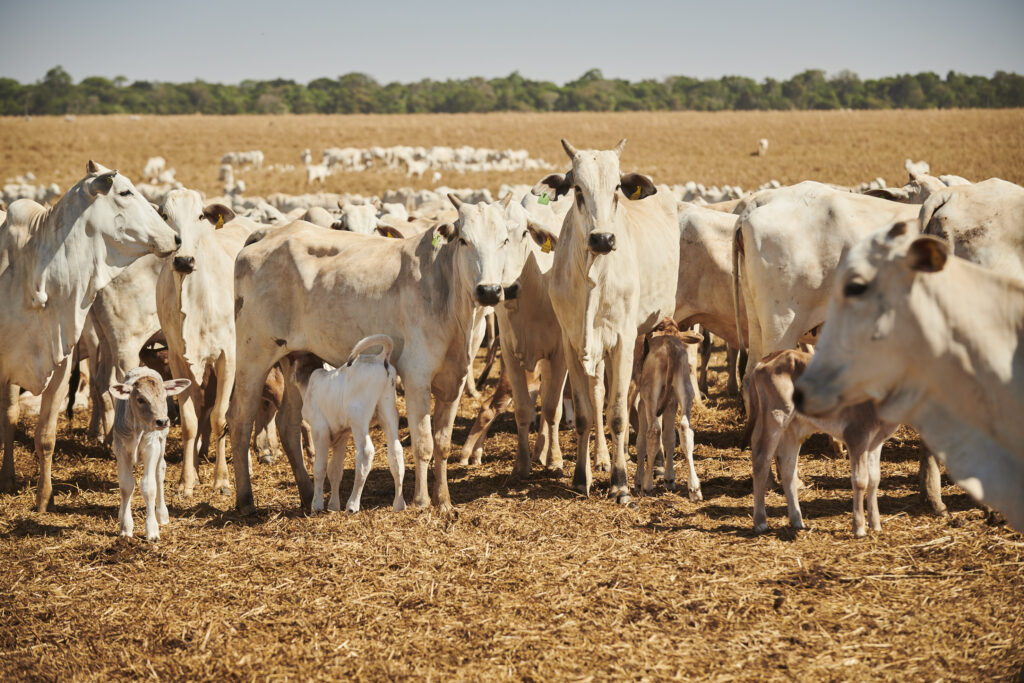
Produzindo Certo, still Aliança da Terra at the time, witnessed the efforts of administrators on this journey and is proud to have supported its transformation. Produzindo Certo’s technical team joined in to support investments already being made on the farm in order to strengthen production practices, as well as technology to provide a unique insight into the balance between production and respect for people and the environment.
Fazenda Roncador has part of the platform since 2008. The following year, it signed its first social and environmental adjustment commitments. An initial assessment established the property’s profile, providing a broad and integrated view of its positive points and areas in need of improvement. It served as a guide for action.
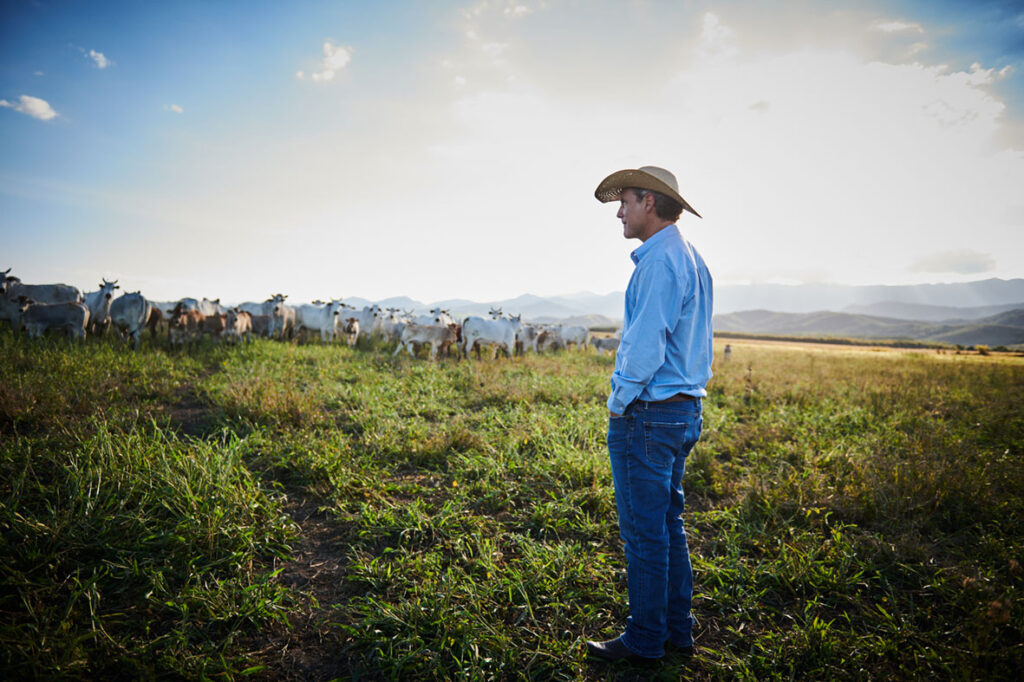
“On the first survey, you see a map that’s all painted. What now, right?” jokes Penido. “It is a good tool that details everything. The best thing is for you to know what can be improved. It put what needed to be done into perspective”, he adds.
In a property as large as Roncador Farm, everything is superlative. Internal roads alone total 700 kilometers, along which approximately 1,000 people live. After the technical team’s first visit, farm administrators made a commitment to improve 205 items at risk of becoming liabilities if not addressed.
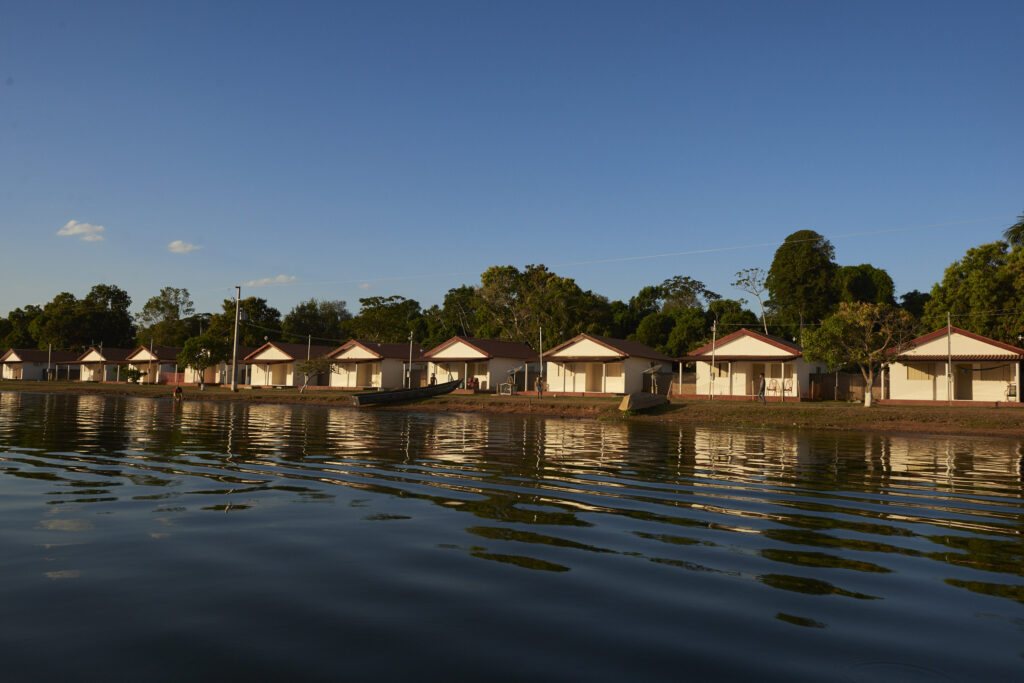
Among these aspects, Penido highlights investment in the work environment, ensuring greater safety and wellbeing for employees. The property has grown from 70 to over 400 employees in a decade. Management of Permanent Preservation Areas (PPAs) has also evolved, and more than 30% has been recovered. The dashboard that monitors the farm’s social and environmental status includes other information on social, environmental, and production aspects. This is part of the Management service, one of the products in the portfolio offered by Produzindo Certo. Today, the property is among those with the best social and environmental score on the platform—above 90.
Since 2008, no new areas have been cleared on the farm. Located in a transition region between Cerrado and Forest biomes, within the Legal Amazon, Roncador Farm needs to maintain half of its area as native forest or permanent protection areas, according to the Forest Code. In addition to the 76,000 hectares currently preserved, the administrators want to expand this native vegetation cover. For this, they have a nursery in place with about 40,000 seedlings of native species. With more areas preserved, wildlife is also expanding.
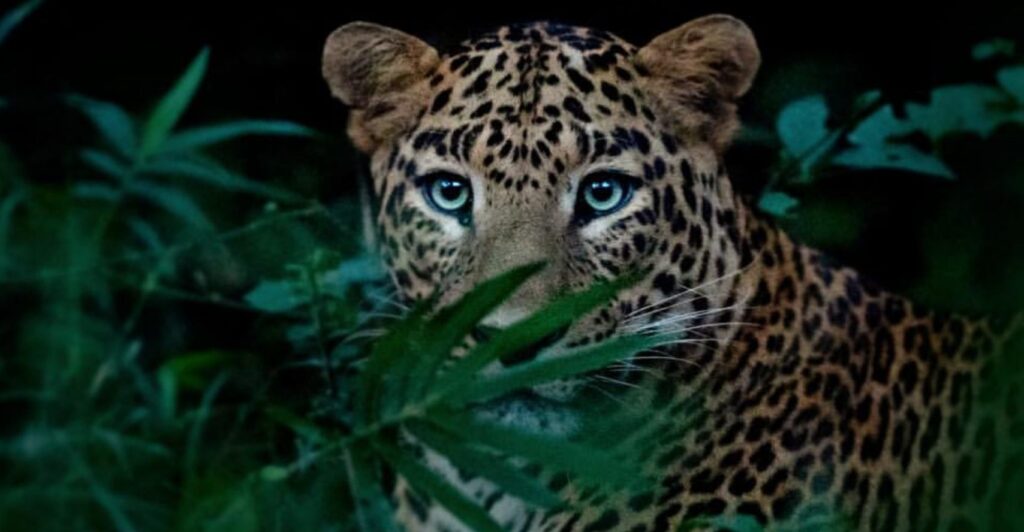
In addition to birds and small animals, jaguars are increasingly present in the region. Proof of this is the number of cattle slaughtered by jaguars, which increased from 90 to over 900 in 2018. Nonetheless, this is not viewed as a loss by the administrators of the herd of 70,000 heads. First and foremost, it’s an indicator of the quality of local biodiversity. The farm was the first in Brazil to obtain the protection certificate issued by the Instituto Onça Pintada.
Roncador Farm integrates another initiative with Produzindo Certo within the Rubia Gallega program to monitor meat suppliers for Grupo Pão de Açúcar (GPA)—an action created in 2016. Produzindo Certo’s technical teams visit annually and evaluate legal, environmental, social, economic, animal welfare, and traceability aspects.
During this period, production and social and environmental management became more sophisticated and the farm adhered to other commitments, such as the 3S Program for Sustainable Supply solutions and the IBS (Instituto Biosistêmico) for consulting and services in sustainable agriculture and rural development.
A dynamic cycle at Roncador Farm. Full of life
More food is being produced without clearing new areas. The productive portion of the farm is divided between livestock (26,000 ha) and the integrated soy-ox system (30,000 ha). In the crop-livestock integration model, from October to February the focus is on agriculture, with cattle raising predominating from April to September. An additional 20,000 ha are used to plant soybeans and corn in a joint venture with the SLC group, where the integrated production model is just beginning.
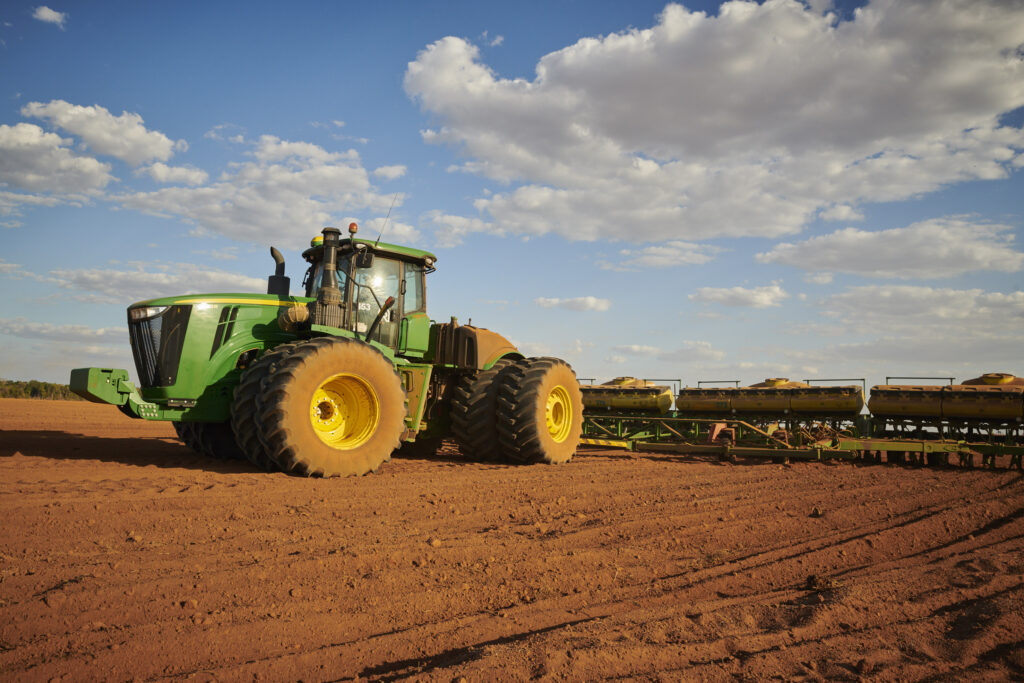
The integration of crops means more productivity and quality. Soybeans fix nitrogen into the soil, and by stimulating grazing (the passage of cattle through these areas), soil life is increased as manure and urine yield more nutritious grasses. Their roots can reach three meters in depth and decompress the soil creating micro-galleries, which increase the permeability to organic matter (especially CO2). The remaining straw (at least 2.5t of dry matter) guarantees soil cover for the direct planting of soybeans, in addition to allowing for greater humidity and thermal comfort for the next soy crop.
This practice further reduces the need for fertilizers. Roncador farm is also committed to reducing the use of pesticides—currently below the threshold set out by the European Union—and performs biological pest control. The purpose is to expand the use of biological pesticides across the entire grain production system in the coming years.
Contribution to carbon reduction
The result of this whole process is a positive carbon farm. In other words, Roncador’s activities absorb a greater volume of greenhouse gases than they release into the atmosphere, helping to combat climate change. In the 2017/2018 harvest, the operation released 82,499 tons of CO2 equivalent (tCO2e) while sequestering 172,329 tCO2e. To get an idea of the effects of this benefit, it is as if the farm’s activities removed 51,000 cars from the roads every year.
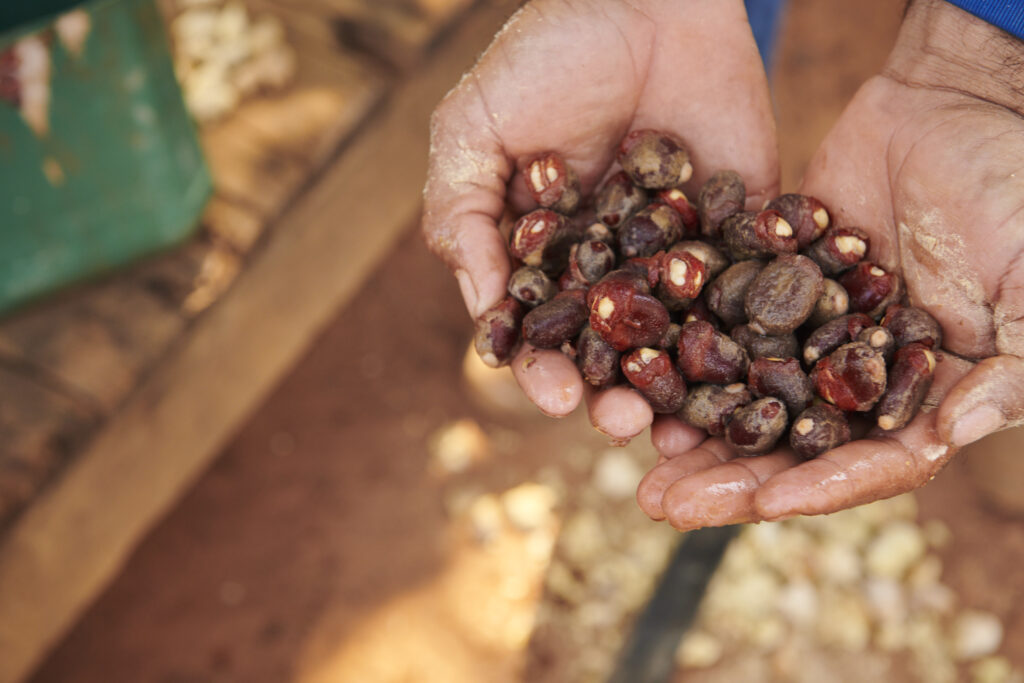
The farm’s transformational journey brought gains and learning. Management and governance are critical aspects. Its system is based on dozens of continuously measured indicators, and the social and environmental diagnostic is one of them. This guarantees efficiency and positive results as a consequence, as shown by the numbers showcased by Roncador.
“Sustainability is not a dirty word. Without the economic outcomes, the business is not viable. If you don’t rely on a motivated team, with a low turnover rate, people adding knowledge and developing, performance cannot be sustained. Without environmental management, the planet will heat up and food production won’t be possible in the needed amount”, Penido reflects, highlighting the interdependence of the economic, social, and environmental pillars.
Other results have been achieved based on the farm’s consistent work over the past 10 years. In June, Grupo Roncador obtained a US$ 10 million loan from the &Green Fund, with interest rates below the market average of 3% per year. The Norwegian fund is focused on the protection of forests and tropical forest commodities and was interested in the property’s work based on their productivity and environmental conservation results. Roncador is committed to increasing food production by another 58% over the next eight years. And it is committed to doing it just as it has done it so far: without cutting down a single tree.
To learn more about Fazenda Roncador go to
www.fazendaroncador.com.br
To learn more about Produzindo Certo’s Management product, click here.
